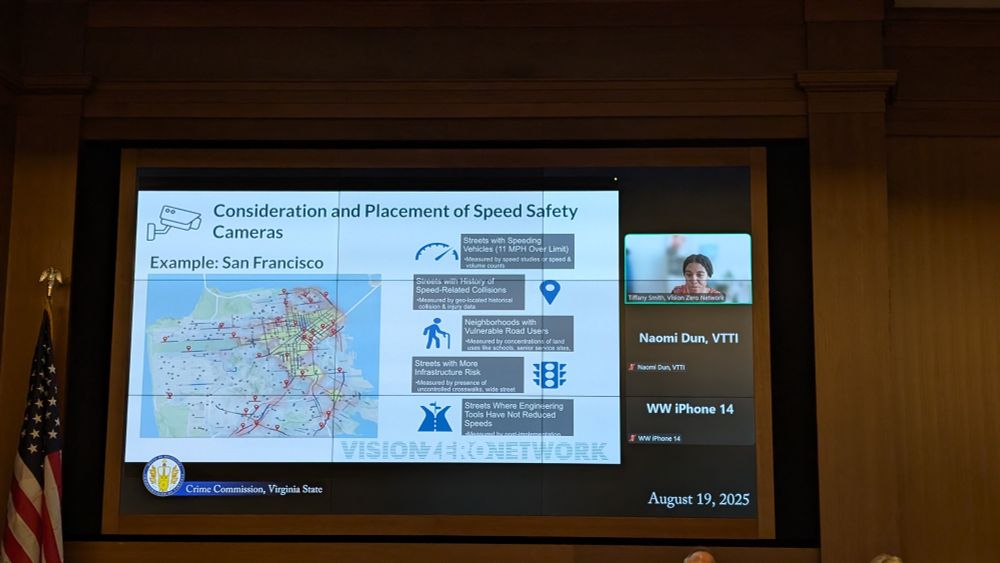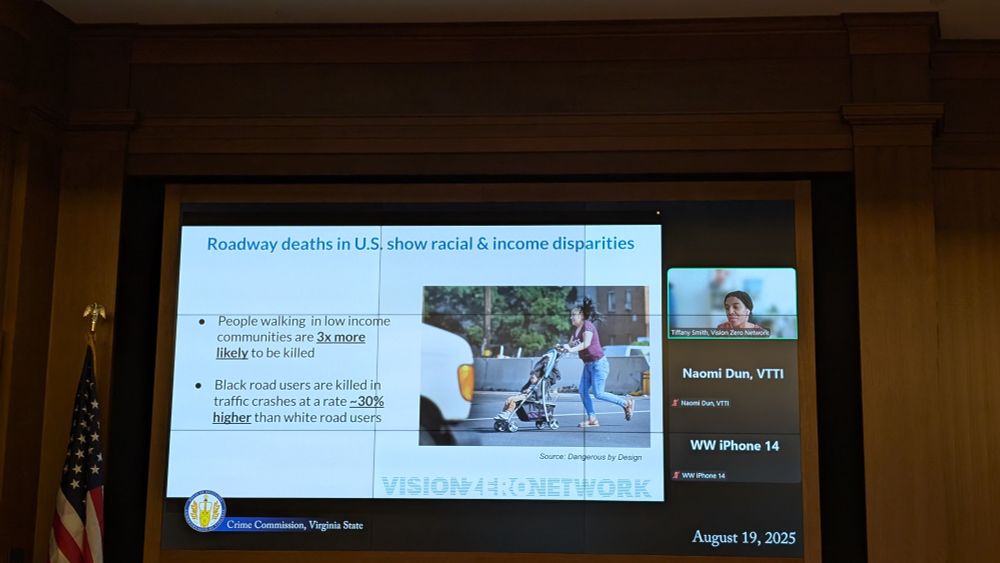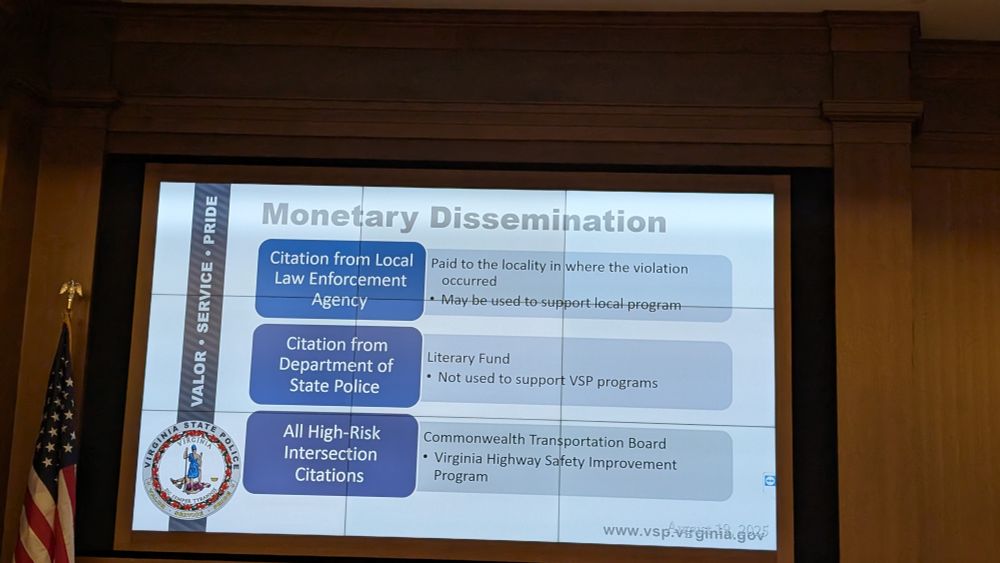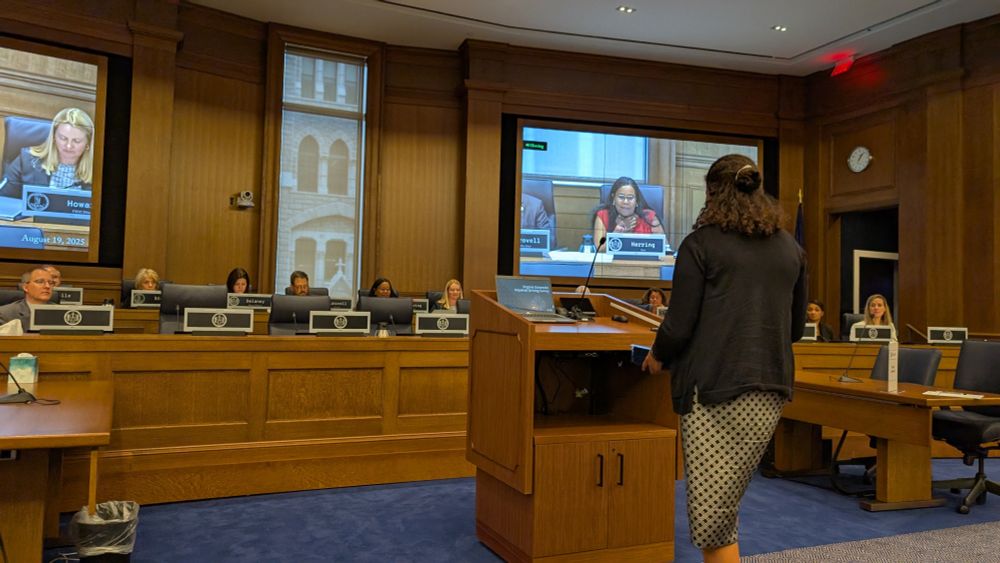Woooooo!
Replies
The meeting is underway but after an overview of the crime commission Theo Stamos of the Virginia Attorney General office questions the studies about FLOCK cameras. Chair Delegate Charniele Herring assures that it's a comprehensive study.
Upcoming studies will include FLOCK automatic licence plate readers and law enforcement use of AI technologies. The target date for the meeting to cover those studies is December 2, 2025.
First presentation is from Tiffany Smith of Vision Zero Network that highlights how speeding cameras reduce speeding violations and reduce the likelihood of pedestrian death. Smith says cameras should be only a tool and that making a safe design to roads should be top priority.
Giving fines to speeders is a burden to lower income people and that higher fines don't show reduction in speeding. Selecting locations is important in equity for placement of cameras.
Senator Mark Peake highlights how Black road users (drivers, pedestrians, ect) have 30% higher rate of death and cameras can't tell if a driver's race. Smith pushes back and says investments could be balanced for locals that feel like it's a cash grab with no new infrastructure.
A representative from Virginia State Police is giving a presentation on speeding cameras and Herring tells Peaks to let the presenter finish.
As VSP's Julia Gunderson points out, state police use fines to support the Literary Fund not more cops but local police and use money however the local government chooses.
Next presentation from Brianna Bonat of the Cannabis Control Authority about impaired driving on marijuana. The official Goad stance is please don't drive high but the study shows that more of you are doing so.
Unfortunately, I have to leave early and call it a day. This ends today's coverage of the crime commission and outbursts from Mark Peake.
State Crime Commission? Sounds like some local low-level super villain organisation.









